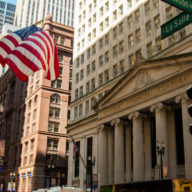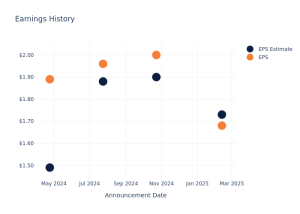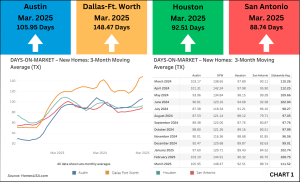
Federal Reserve Chair Jerome Powell indicated Thursday the remarkable strength of the U.S. economy is not sending any signals that policymakers “need to be in a hurry to lower rates.”
Powell’s remarks came at an event organized by the Dallas Regional Chamber on Thursday, just a week after his press conference following the November Federal Reserve meeting.
“Inflation is running much closer to our 2% longer-run goal, but it is not there yet. We are committed to finishing the job,” Powell said.
The Fed chair hinted that interest rates may be moving “to a more neutral setting,” but stressed that “the path for getting there is not preset.”
Powell Hints At Economic Strength, Warns About Risk Of Tariff Retaliations
Powell described the U.S. economy’s recent performance as “by far the best of any major economy in the world.” He attributed this strength in part to increased productivity.
“Productivity has grown faster over the past five years than its pace in the two decades before the pandemic, increasing the productive capacity of the economy and allowing rapid economic growth without overheating,” he said.
This resilience in the economy, according to Powell, gives the Federal Reserve the flexibility to “approach our decisions carefully,” though he underscored that the future path of interest rates would depend on how incoming data and economic forecasts evolve.
Powell expressed confidence that, with careful adjustments to the Fed’s policy stance, the strength of both the economy and the labor market could be preserved, while inflation trends back down to the Fed’s 2% target.
Regarding the labor market, Powell downplayed the significance of the October jobs report, noting it was influenced by temporary factors such as hurricanes and labor strikes.
He also indicated no urgency to change Fed policy in response to potential shifts in fiscal policy under the new Trump’s administration.
“It takes quite a long time to get a bill through Congress. We have time to make assessments about what the net effects of policy changes will be on the economy before we work with policy,” he said.
Powell reiterated his concern over the U.S. fiscal trajectory, calling it “unsustainable.”
“We have a very large deficit at a time when we’re at full employment,” Powell said, adding that he and recommended addressing it “sooner rather than later.”
When asked about the impact of higher trade tariffs on monetary policy, Powell was cautious but said scenarios involving retaliatory measures from other countries would require close monitoring by the Fed.
Market Reactions
Powell’s cautious remarks about the path for interest rates led to a sharp repricing of December rate cut expectations.
According to the CME FedWatch tool, the probability of a 25-basis-point rate cut in December has dropped, with Fed futures now indicating a 62% chance, down from prior estimates of nearly 80%.
In response, the U.S. dollar rallied, extending its winning streak to five sessions. Treasury yields also reversed course, with significant gains across the curve as investors adjusted their rate expectations. The yield on the two-year Treasury note, which is particularly sensitive to Fed policy shifts, jumped 6 basis points to 4.34%.
Equity markets reacted negatively to Powell’s tone. Major U.S. indices turned lower, with the S&P 500, tracked by the SPDR S&P 500 ETF Trust SPY, down 0.7%. The tech-heavy Nasdaq-100, represented by the Invesco QQQ Trust QQQ, slipped 0.8%.
Small-cap stocks suffered the most, with the iShares Russell 2000 ETF IWM dropping 1.3%, signaling broader risk aversion among investors.
Read Next:
Photo: Jerome Powell at the Nov. 7 FOMC press conference. Photo courtesy of the Federal Reserve.
Market News and Data brought to you by Benzinga APIs
© 2024 Benzinga.com. Benzinga does not provide investment advice. All rights reserved.


